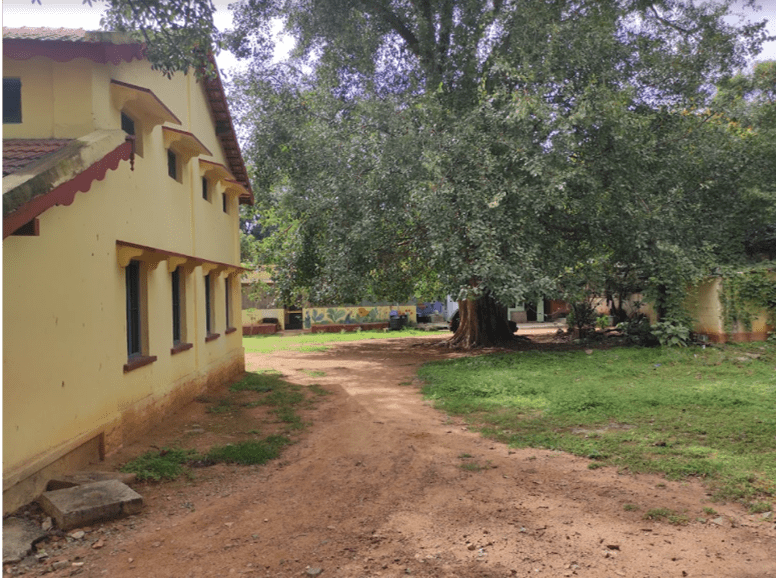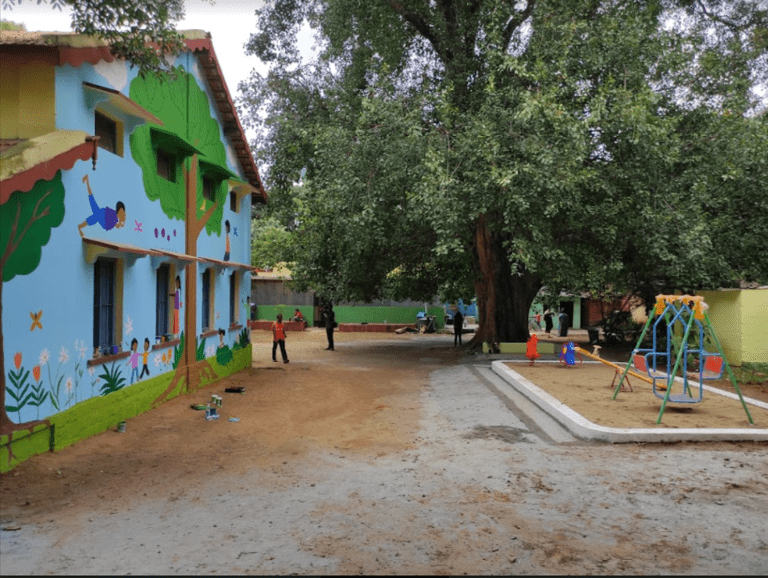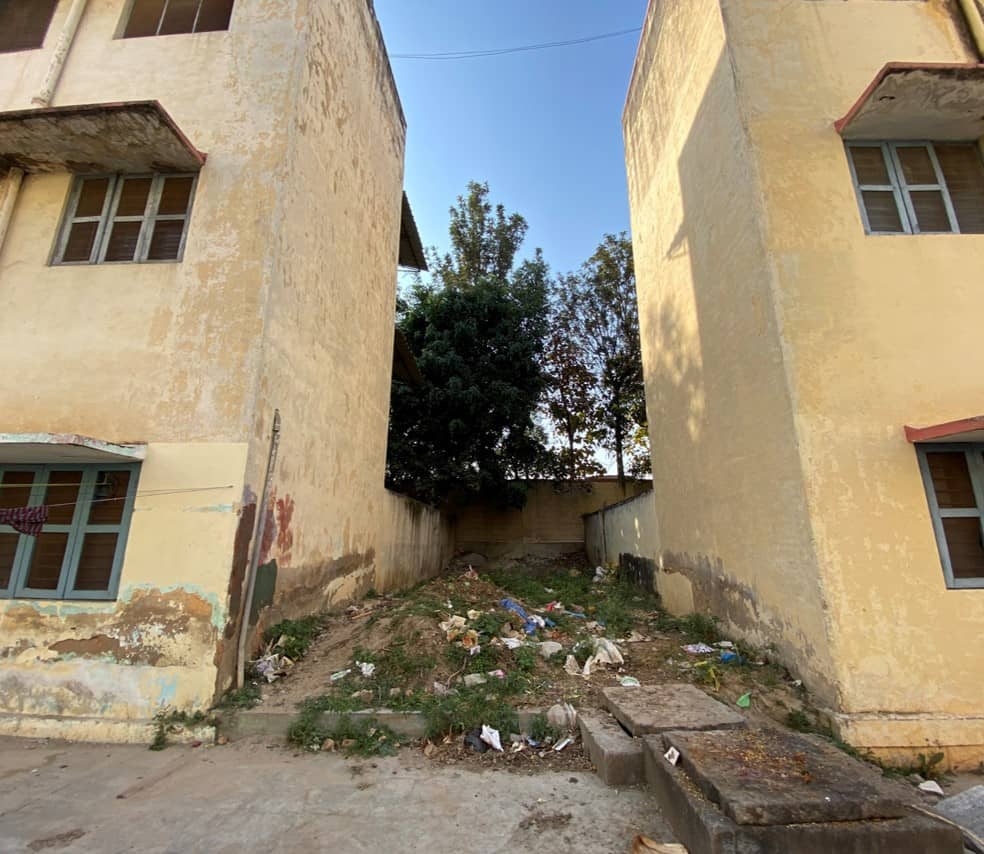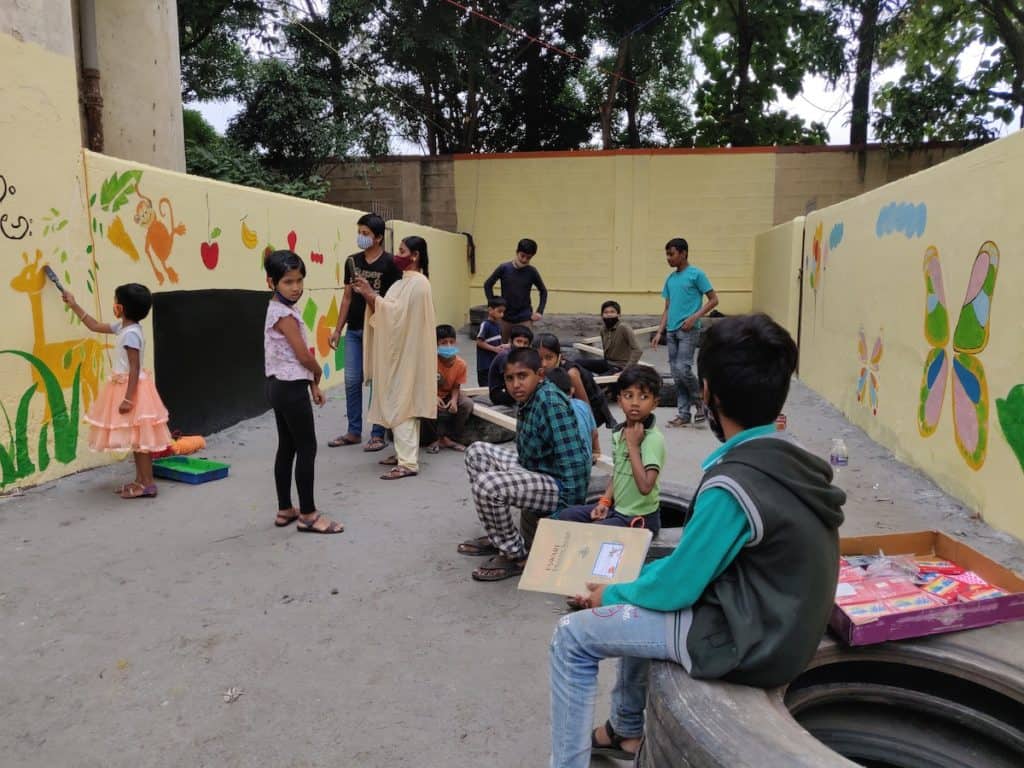Bengaluru is a finalist in a nationwide competition to implement and scale kid-friendly neighbourhood design over the next two years. Pilot projects formulated and implemented by the Directorate of Urban Land Transport (DULT) and Bengaluru Smart City Ltd (BenSCL) aim to enhance access to transit, open spaces, maternity hospitals and anganwadis.
There are ten winning cities in the Nurturing Neighbourhoods Challenge, a national initiative to shape neighbourhoods across India that support healthy early childhood development. The challenge was launched in November 2020 by the Smart Cities Mission, Ministry of Housing and Urban Affairs (MoHUA), in collaboration with the Bernard van Leer Foundation (BvLF) and technical partner World Resources Institute (WRI) India. The winning cities also include Hubballi-Dharwad, Indore, Jabalpur, Kakinada, Kochi, Kohima, Rourkela, Vadodara, and Warangal. Finalists were selected following evaluation of their proposed and implemented projects by a jury of representatives from MoHUA, BvLF, and independent experts in urban design, early childhood development, and behavioural change.
“Designing cities for infants, toddlers, and caregivers has become a mainstream component of our planning and design practice over the last six months. Drawing on learnings from the challenge, we are working to incorporate guidelines for amenities such as breastfeeding stations, family bathrooms, and child-sized washbasins in state-level guidelines.”
V Manjula, Commissioner, DULT
In the first stage of the challenge, DULT and BenSCL jointly responded to MoHUA’s open call for proposals to implement neighbourhood-level pilot projects improving public spaces, streets, transport, and access to services to enhance the health and wellbeing of 0-5 year old children and their caregivers. In February 2021, Bengaluru was shortlisted by an expert committee from over 60 applicant cities across the country. Over the next seven months, it was part of a cohort of 25 cities that received technical assistance and capacity building to solicit citizen participation, implement trials and pilots, and build consensus around their proposals.
Read more: Church Street pedestrianisation reduced air pollution, improved quality of life: IISc study
DULT and BenSCL targeted interventions in the Shanthinagar and Hombegowda Nagar wards, where infants and toddlers make up nearly ten percent of the population. This included converting underutilised pockets of land within the KSRTC residential quarters into toddler-friendly microparks or ‘Putaani Parks’, and ongoing work to create shaded waiting spaces for caregivers outside BBMP maternity hospital. At Tamil School Anganwadi, the team created a play area to support motor skill and cognitive development of young children and modified amenities to better suit their needs, with child-sized toilets, wash basins and railings at lower heights.
The pilot project at Tamil School anganwadi


Read more: A vocabulary for public infrastructure in Bengaluru
Over the next two years, Bengaluru and the other winners will be supported to scale up infant, toddler, caregiver-friendly neighbourhood interventions across the city. In addition to physical projects in public spaces, the cities will identify and pursue policy, administrative, and institutional changes needed to incorporate the early-childhood lens in their approach to urban planning and development.
“Under the challenge, we plan to make spaces around anganwadis playful and accessible to young children, pregnant women and caregivers who accompany them with facilities such as toilets, drinking water facilities, and play areas to support the needs of young children.”
Nodal officer from Bengaluru Smart City
Putaani Park intervention at KSRTC quarters


Ann Jacob, Senior Urban Planner, DULT, says, “At DULT, our vision is to employ inclusive urban planning and design to foster independence in young children while accessing public spaces and public transport. We are proud to be selected as finalists and look forward to scaling up this work in the years ahead.”
For more information on the Nurturing Neighbourhoods Challenge, please visit niua.org.
[This article is based on a press release from World Resources Institute and has been published with minimal edits.]
[Addendum: A quote attribution in the article has been changed, based on the updated version of the press release.]